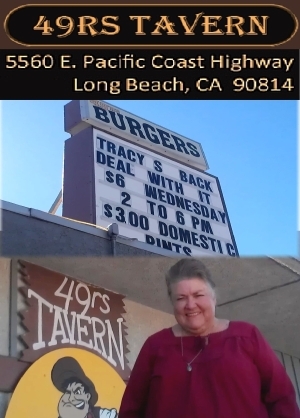The issue will reach the Council on
Sponsor | Sponsor |
LBREPORT.com has examined 404 pages of guidelines issued the Governor's Office of Planning and Research (OPR). We find no explicit citation or requirement that a city must update its Land Use Element for over 20 years to 2040 or for any other specific time period. Some cities have used Land Use Element time periods of 15-20 years, but at least one has used a period as short as five years.
The only element of a city's multi-element General Plan that we understand a city must update to cover a certain time period is its Housing Element, which Long Beach updated with Council voted approval in fall 2013 for a period stretching to 2021.
In a Feb. 23 telephone conversation with LBREPORT.com, City of Long Beach Planning Bureau Manager Linda Tatum didn't deny our summarized references to state law above but offered a number of points in response.
Ms. Tatum noted that many if not most other CA cities and their professional planning staffs prefer and use a longer time period of roughly twenty years. She said this is understandable because the process to update a city's General Plan and Land Use Element is complex, labor intensive, time consuming and burdensome for city officials and the public and many cities understandably choose not to undertake that task repeatedly.
Sponsor |  |
Ms. Tatum also cited page 22 of the Governor's Office of Planning and Research 2017 "General Plan Guidelines" states the following in a paragraph titled "Long Term Perspective"
Since the general plan affects the welfare of current and future generations, state law requires that the plan take along-term perspective (Gov. Code § 65300). The general plan projects conditions and needs into the future as a basis for determining objectives. It also establisheslong-term policy forday-to-day decision-making based upon those objectives. [Source: OPR 2017 Gen'l Plan Guidelines, p. 22]
And Ms. Tatum politely indicated that as a decades long planning professional, she considers a Land Use Element planning period of 20 years appropriate.
LBREPORT.com respectfully disagrees.
We note that OPR guideline verbiage above refers to "General Plans," not specifically to its "Land Use Element." The CA Government Code states in pertinent part that a city's legislative body "shall adopt a comprehensive, long-term general plan for the physical development of the county or city" (CA Gov. Code § 65300.) It states that "the Legislature intends that the general plan and elements and parts thereof comprise an integrated, internally consistent and compatible statement of policies for the adopting agency. (CA Gov't Code § 65300.5). It contains a number of detailed provisions too lengthy to cite here.
However LBREPORT.com knows of no statutory barries precluding the LB City Council from updating its Land Use Element using a 5 or 10 year time period instead of the 22 year period currently proposed by city staff. On that basis, we believe it is within the Council's discretion to choose a shorter period to 2023 or 2028. We don't believe this threshold issue has been seriously explored by the City Council or has been the subject of a Council requested City Attorney opinion on the matter to date.
Sponsor | Sponsor |
The Coucil has multiple grounds on the merits not to advance (with or without tweaks) currently proposed Land Use Element maps and instead direct city staff to revise its LUE to reflect a more prudent, shorter time period to 2023 or 2028. These include:
- The 2017 enactment of over a dozen complex state laws. Roughly a dozen new state laws contain various locally prescriptive and preemptive housing density/land use provisions (some of which reduce or erase long-held public CEQA rights.) These multiple new laws, enacted in September 2017 without opposition by the City of Long Beach, weren't in effect when city staff initially released its PlaceType style LUE in May 2015. Their impacts weren't seriously discussed by the City Council or subjected to serious City or public review as the LUE progressed through most of 2017.
- Uncertainty and ambiguity risks in the recently enacted state laws: State agencies haven't yet enacted guidelines to the recently enacted land use/housing density laws showing how the agencies will interpret and impose them. No court has yet ruled on ambiguities and arguably conflicting interpretations of critical portions of the new laws (including some critical verbiage in SB 35.) Notwithstanding the considerable expertise of LB City Attorney's office, no lawyer on the face of the Earth can be expected to know with certainty at this point how critical portions of those newly enacted state laws (including
SB 35 ) may be applied to Long Beach. Under these circumstances, for the LB City Council -- in its first voted action on the matter -- to advance a developer-driven density-increasing LUE would risk a number of unintended permanent consequences. It would arguably repeat and expand a historic self-inflicted wound of the past when a former LB City Council enabled damaging "crackerbox" density (that some contended at the time would meet a "housing shortage" and bring prosperity.) Doing so seems especially imprudent if not reckless for Long Beach Councilmembers now. - The folly of applying a 22-year planning period to 2040. Look back 22 years. Consider how unwise it would have been to lock Long Beach into a 1996 "planning forecast" for conditions in 2018. No high speed internet. No Amazon mass retailing (an online bookstore started in 1995.) No "smart phones." No digital cameras. No social network communication. (And no LBREPORT.com, which pioneered and developed independent online local news in Long Beach starting in August 2000.)
Much of what we depend on in our daily lives now didn't exist 22 years ago. This doesn't mean doing no planning, but in our view it does mean doing more prudent, more cautious planning. To make permanently impactful development decisions stretching 22 years ahead would be especially unwise and imprudent.
blog comments powered by Disqus
Recommend LBREPORT.com to your Facebook friends:
Follow LBReport.com with:
RSS |
Contact us: mail@LBReport.com





Hardwood Floor Specialists
Call (562) 422-2800 or (714) 836-7050
